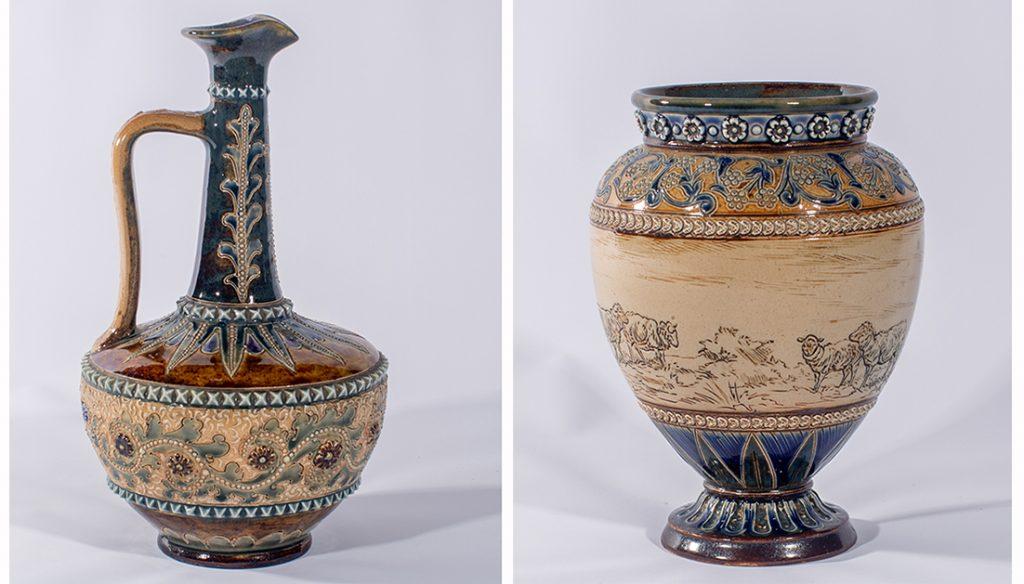
From Heath to HedgerowDoulton Lambeth Ware and the British Countryside
June 5, 2021 through July 31, 2022
Doulton Lambeth Pottery works were well-known for their industrial products up until the company presented a small selection of purely decorative vases, bowls, and jugs at the 1867 international exposition universelle in Paris. These artistic works, later collectively termed Doulton Lambeth ware, were the genesis of a new, uniquely British ceramic style. These sturdy, yet beautiful pieces of stoneware—in contrast to the more delicate ceramics produced by other national companies such as Minton and Wedgwood—fascinated British society. By 1900, the company established a dedicated team of artisans to develop this line of decorative products, many of whom were graduates of the local Lambeth Art School. Designs of the natural world with floral, animal, and sporting scenes were most prevalent.
Like the long artistic tradition of British landscape, rural genre scenes, and sporting imagery, Doulton Lambeth ware’s designs are tied to the countryside. Decorated in subtle earth-toned glazes of blue, brown, tan, and green, the line imitated nature. Much of the wares’ delicate incised and applied designs owes to the work of sisters Hannah and Florence Barlow who elegantly captured quintessentially English fields of sheep and wildflowers. From Heath to Hedgerow is drawn from the collection of the late Eleanor and Leonard Davidov, on loan to the Museum of Fine Arts from the Davidov Family.
This exhibition occurs in the Minck Gallery, which is supported by the Helen and Richard Minck Memorial Fund.